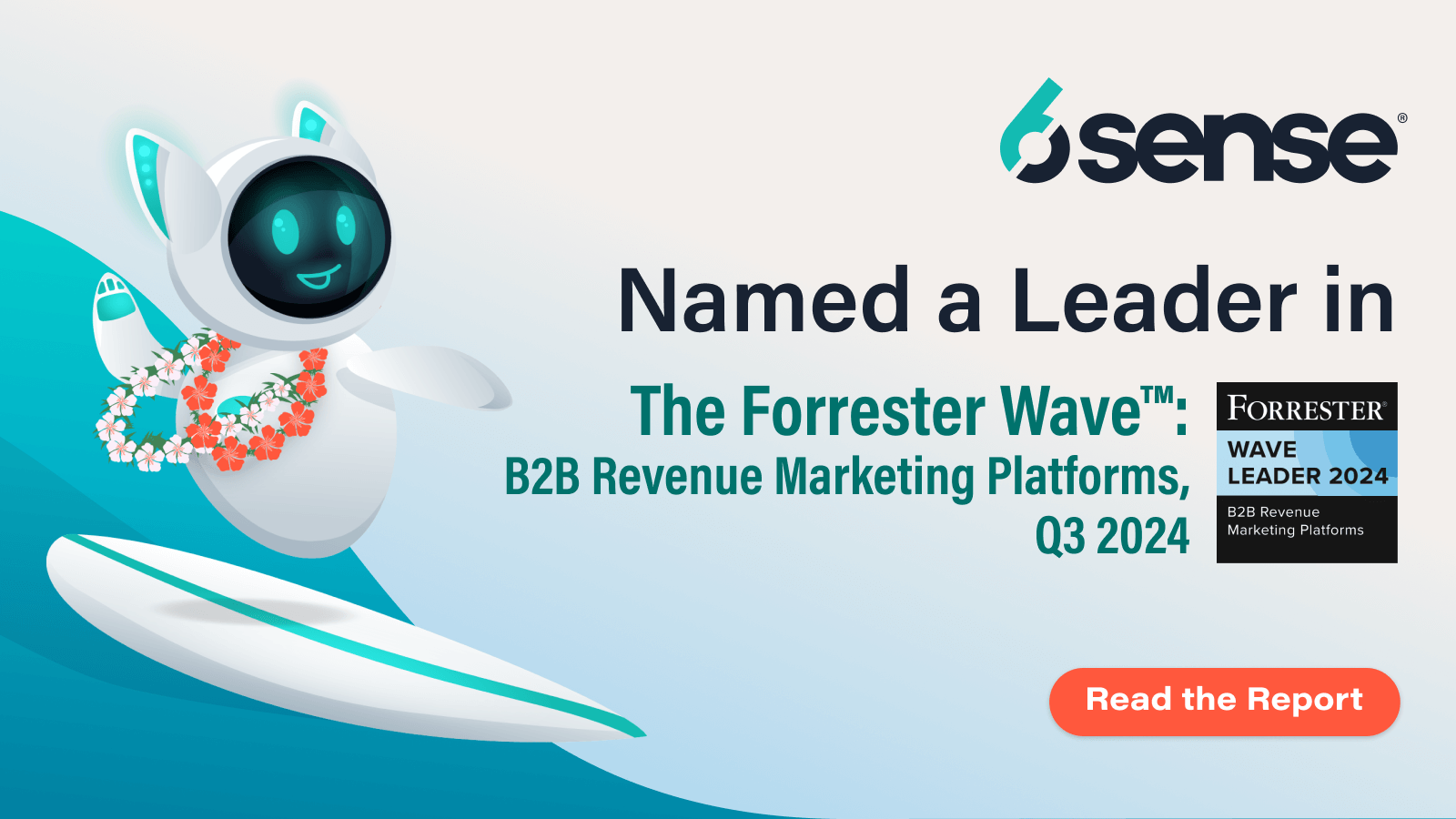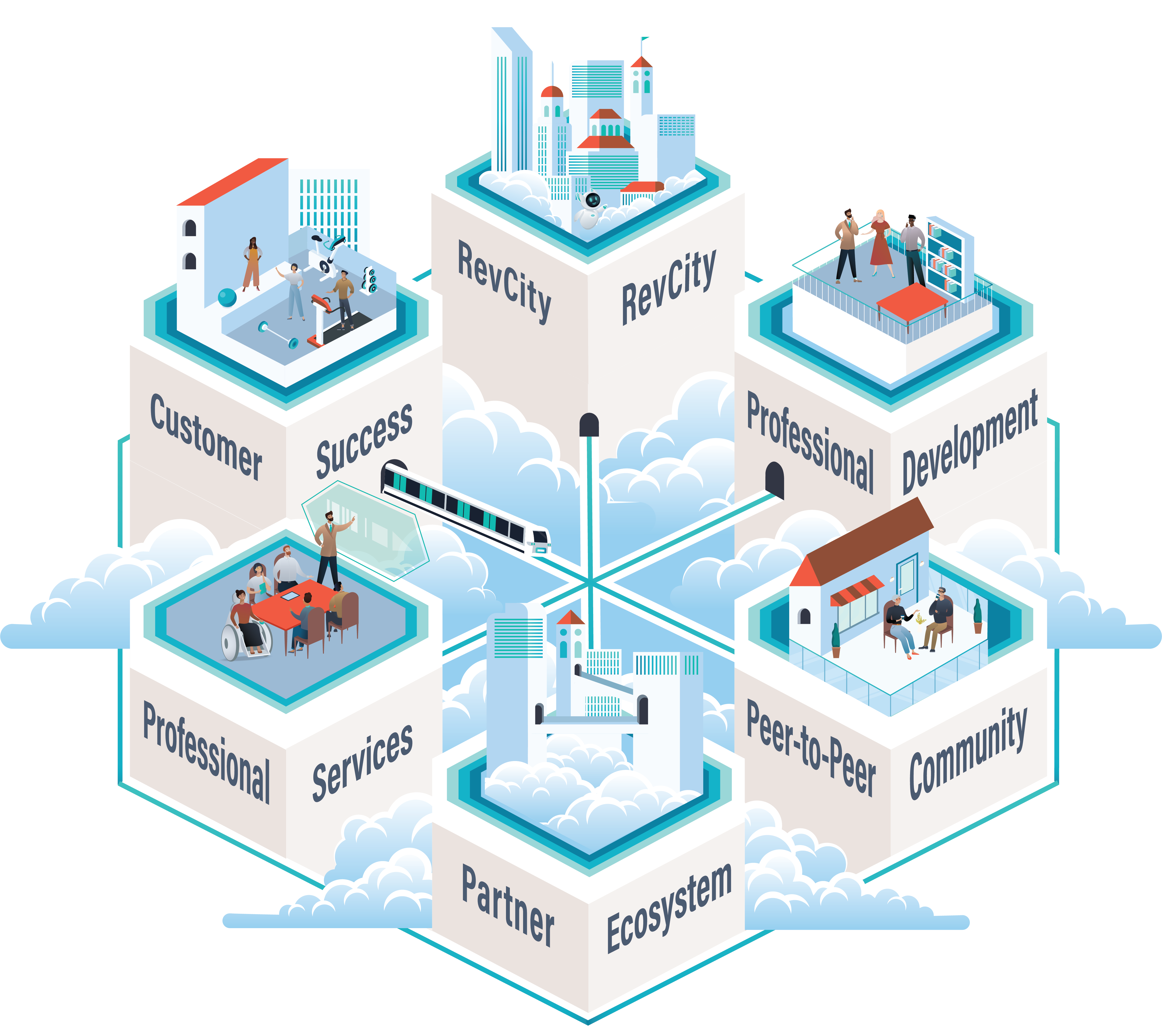Today, July 25, is National Hire a Veteran Day in the United States. The goal of this special day, created in 2017, is to inspire employers to recognize the unique skills and values veterans bring to the workforce, and hire them.
It can be challenging for veterans who’re seeking civilian jobs after leaving the military. That’s why this day — and the awareness it brings to their perspectives and invaluable job skills — is so important.
To spotlight these perspectives and skills, we recently spoke with veterans Jared Chism, Logan Sheets, and Evan Girouard, three 6sense employees and members of our Valor employee resource group. Valor helps to cultivate a community for military veterans, their families, and supporters within 6sense. It also supports how 6sense connects with the military veterans in the workplace.
Jared Chism is a 6sense Senior Customer Success Manager who served in the Coast Guard from 2005 to 2009. He was stationed in Gulfport, Mississippi. “I’m a veteran of the branch of the military that a lot of people don’t know is a branch of the military,” he says.
Logan Sheets is a talent coordinator at 6sense. He served in the U.S. Army for five years, in the field artillery branch at Fort Campbell, Kentucky. He had one combat deployment to Iraq in 2018 into 2019, and transitioned out of the Army in March 2022.
Evan Girouard is a Senior Manager of Go-to-Market Finance at 6sense and co-chair of the Valor ERG. He served as a paratrooper providing logistics support for 1st Special Forces Group (Airborne) out of Joint Base Lewis-McChord, Washington. He left the Army in 2016.
Here, Jared, Logan, and Evan speak about National Hire a Veteran Day and how employers can look to veterans to add value on their teams.
6sense: Why is hiring veterans important?
Jared: Veterans bring a unique experience that can be super valuable to companies. In the military, you work with a very diverse group of people — people who have very different backgrounds than you do, but you’re coming together for a common mission. Everyone has a role.
You’re relying on everyone to be doing their job well and working together on the mission, working in the same direction. That kind of teamwork and reliability is something every company can use.
Evan: Military veterans are constantly challenged with adversity. Military service requires servicemembers to train for, and deliver within, extremely high-pressure situations. When you bring a veteran onto your team, you’re getting someone that knows how to “adapt and overcome.” That’s an incredibly valuable skill set in the workplace and especially so in the tech industry and high-growth companies.
Hiring veterans just makes good sense for companies looking to find high performers!
What should hiring managers know about hiring vets?
Logan: When I first got out, I applied for an emergency management coordinator role. They told me that because I didn’t have the education background, and the experience I had in the military was a combat role, I was inexperienced for that job. But there’s so much more than what’s on a resume. Hiring managers should ask those questions about leadership. We’re way more capable than you might think.
Jared: I always tell veterans who are getting out of the military: unless you’re going into something related to what you did in the military, focus on the soft skills that you learned in the military. Working in a diverse environment, the teamwork aspect of it, the communication.
What I did in the Coast Guard — search and rescue, federal law enforcement, and all the cool stuff we did — took up 20% or 30% of my time. There’s so much more to what I was doing day-to-day that doesn’t reflect the awards that I earned and what my job title was. And I would say the same for any other veteran.
Evan: Hiring managers need to know that they’re getting someone who has an accelerated learning curve and is able to be process- and procedure-oriented.
Servicemembers learn about the ins and outs of all kinds of equipment and technology they’ve never had exposure to prior to their service — and all are expected to become subject matter experts in those areas. Think about a pilot who’s had to learn the complexities of learning four different aircraft over a year of training. Tell me that person won’t be able to pick up the nuances of your product or a particular software tool at your company!
On top of that, hiring managers will know they’re getting a leader. I’ve gotten more leadership training in the military than I’ve ever had in my civilian career, and time after time, I’ve seen veterans quickly become a natural team lead. They alleviate pressure off of their managers as a servant leader and accountability partner for their teams.
What should vets know about the transition into corporate jobs?
Logan: Use all the resources you can get. There are so many resources out there, especially if you want to go into the corporate world. I know Hiring for Heroes and Shift, who we work with directly with 6sense, who I work with almost every day. They help you beef up your profile, for completely free. Most organizations will do it for free to get you in front of employers.
So many of these organizations are good at translating some of that military terminology that no one on the civilian side of things would understand at all. And they do such a good job at doing that and showcasing that to hiring managers.
Jared: Use your education benefits. They’re great. Take advantage of those. Even if you’re going right into a job out of the military, use the benefits to take night classes and certifications. Take advantage of that for whatever it is that you’re looking to do.
The transition can be hard. Navigate it, find people to talk to about it, and find other veterans to connect with to give tips and whatnot. It gets easier, though. You’ll find that new normal, but the transition from military life to civilian life takes a while to get comfortable with. Be patient with it.
Talk to your managers. Talk to your HR department. If you’re struggling, they have resources available. They can help you navigate those challenges.
How do you feel like you bring your authentic self to 6sense?
Jared: The one thing that I really took out of my time in the military was that big-picture view and always keeping that perspective with everything that I’m doing; that 10,000-foot view of what’s happening. If I make this decision, what are the impacts it is going to have to others on my team, to our customer base, to our product, to support teams, to even working with this customer in the future, especially if there’s a different account team in a few years? It’s something that I found to be a differentiator for myself – always having that view, and I bring it to work every day.
Also, always keep learning. Even when I was in the military, I was always trying to learn the jobs of other people because I always had a curiosity about how things work. And I bring that to work, too. I want to know how things work and I know how to break things too — because if you know how they break, you know what the limitations are.
Another part of my genuine self is that I’m pretty casual. Every time I get on a call with someone, I talk to them like I would be talking to a friend. That’s how I approach my job and it’s worked out well for me. It helps people pull down any walls they might have. If I find that it really disarms them and makes it easier to move forward and work in the same direction and gain their trust.
Logan: In the Army, we had a list of tasks that needed to be done. Especially when I became a team leader, there was a checklist I had to do each day to get things done — and on the talent side of things, I have consistent interview requests, offer letters consistently being sent out, and meeting deadlines.
For me, I think meeting those deadlines in a timely and efficient manner is one thing that was a great transition for me from the military into working for 6sense. Getting that stuff done as quickly but efficiently as possible.
Any advice for those looking to be a valuable ally to veterans in the workplace or during their transition?
Jared: Transitioning is hard. It’s a very different way of life in the military. So I would say don’t be afraid to ask us questions about our service. It might help you understand a little bit more about how we think and operate. I mean, we’ll ask questions back, too, of course, but don’t be afraid to ask us.
Personally, I always feel awkward when people thank me for my service because I’m like, “Thank you for my education.” I got plenty of benefits from it, and a lot of veterans are that way. I always struggle with how to respond to that. But I do appreciate when people acknowledge it in one way or another even if it’s not a direct thank you for your service, but even on Veterans Day highlighting the veterans in the company’s cool.
I’ve never met a veteran who doesn’t like to talk about their service, to be honest. Most of us have done something cool. I was in the Coast Guard. I was never on a battlefield, but I saw a lot with Hurricane Katrina. It was a very unique experience that I got to see and experience. I didn’t appreciate it at the time (for obvious reasons) but, in hindsight, I’m glad I went through it. Don’t be afraid to ask us questions about it, but don’t feel like you have to thank us every time you talk to us, either.
Evan: Give somebody a shot. The best way to thank someone for their service is to give them a fair shake at being a part of your team. Most veteran job seekers just want an opportunity to prove themselves.
As Jared mentioned, ask questions to help your understanding of their capabilities, or ask other veterans who are already in your workplace if there are things you need clarity on when considering bringing someone with military experience on your team. Better yet, include a military veteran on your interview panel if you’re considering bringing someone on who’s separating out from the service and looking for their first role in the corporate sector.
Logan: There’s a stereotype of veterans who enter the corporate sector. I was warned about this by a lot of different people who have had corporate America experience and they said, “Some people will look at you as this person who unfortunately has PTSD and is just absolutely messed up from combat. And people think that something is wrong with you.”
I would just advise people that we’re all human, and we want to be our best selves in front of everybody. And as Jared said, we love to talk about our service. I think that makes us feel best, when we get to talk about our service with people.



